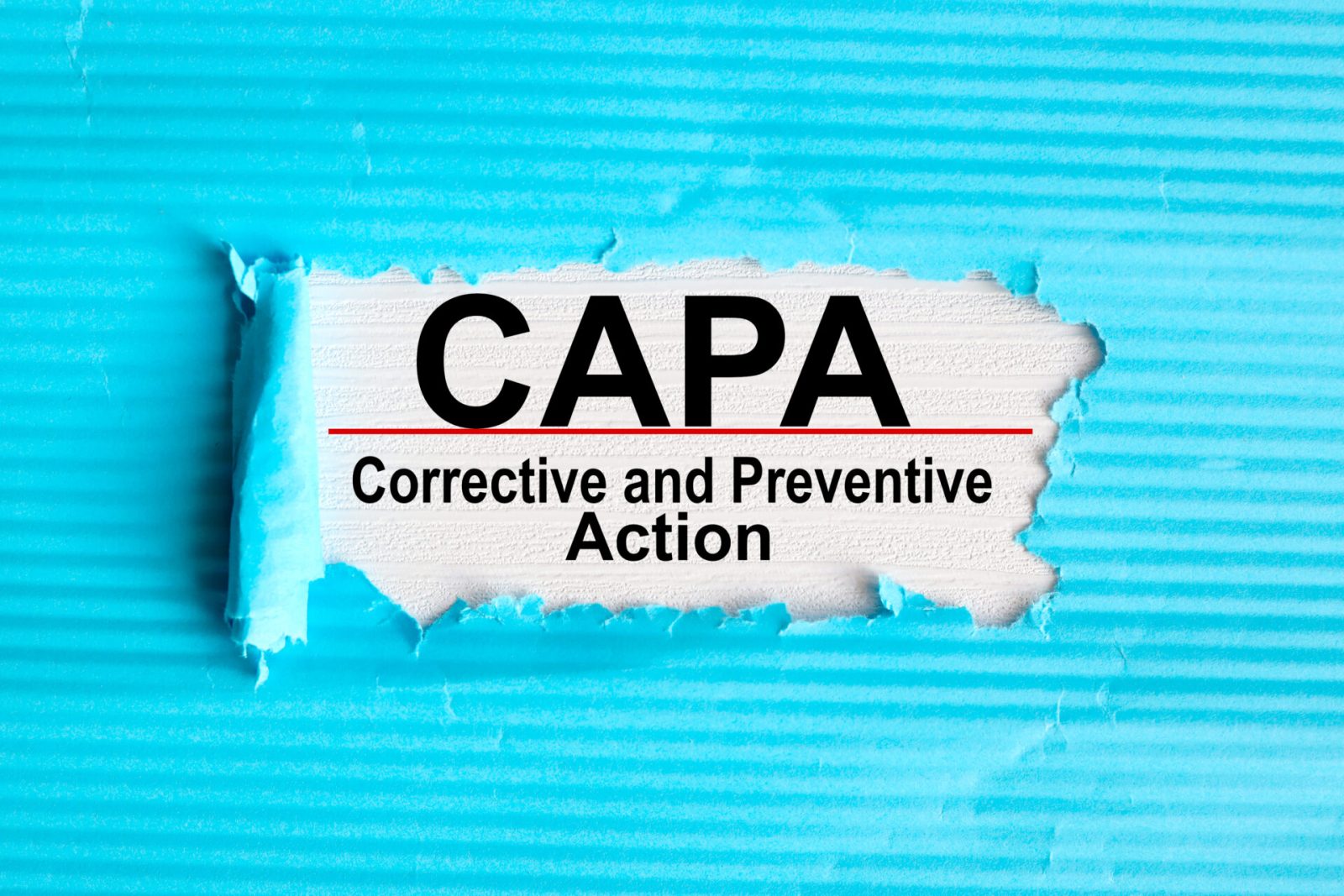Product problems are scary – the damage to customer confidence, financial impacts of returning your products to the market and increased scrutiny from regulatory agencies that often occurs when audits identify big problems can be enough to keep even the most seasoned executive awake at night. Sleepless nights might be warranted – after all, how well you respond may be the key to your company’s survival. First take a breath…not all is lost. There are some steps you can take now to increase your preparedness.
When there are quality issues, the process that takes center stage is called CAPA – Corrective Action, Preventative Action. In other business disciplines, CAPA might be referred to as corrective actions, CAP, incident management and problem management. The goal of CAPA is simple – address the immediate situation that occurred (corrective action) and take steps to avoid it happening again (preventative action). While the goal may be simple, the situations in your quality process and systems can be quite complex – developing for a long period of time, involving multiple players and often obscured by large volumes of data and poorly documented decisions. If you wait until you have big issues, then it may be too late to untangle effectively the web of complexity – lowering your company’s probability of effectively navigating the challenges.
To avoid this (unpleasant) prospect, companies should review their CAPA and quality processes periodically to ensure that people, processes and information are all in-place and ready to be executed should a (potential) recall situation be encountered. Reviewing your CAPA processes prior to big problems can help:
- Identify existing issues that could potentially be addressed to avoid a recall.
- Re-assure regulators that process controls are in place and you are taking quality seriously.
- Ensure your organization is prepared to respond effectively.
When reviewing your CAPA and quality process, look for these key elements:
Key Performance Indicators (KPIs) – The investigation and CAPA processes work best when they are objectively data-driven. Assembling data you will need in advance will not only enable you to speed time to resolution, but also serve as a set of “early-warning” monitors to let you know when a situation may be developing that could escalate to the point of triggering a recall.
Investigation and Troubleshooting Workflows – Does your organization have a well-defined and well-understood set of workflows to investigate and troubleshoot issues? When issues have been encountered during the past, how closely have these workflows been followed? If there is either a lack of awareness or inconsistent adoption, then an investment in training may be needed.
Root Cause Analysis (RCA) Methods – Identifying the right root cause quickly, effectively and efficiently is essential to formulating a successful CAPA response. Ensuring your organization has a core set of RCA tools in its toolbox that it can apply consistently is the first step to avoiding chaos in a product-recall (crisis) situation.
Decision-Making Process – Is it clear who in the organization is responsible for making decisions related to CAPAs, how those decisions are recorded and the way the decisions will be cascaded through the organization? Structured decision-making processes are one of the essential components that regulators will examine during a recall situation. Defining and exercising them in advance will increase regulators’ confidence in your ability to implement CAPAs and sustain their results.
You may need an incident to implement a corrective action, but there is nothing stopping you from seeking preventative actions and implementing them today. Reviewing your CAPA and Quality process is an excellent starting point to avoid costly product recalls for your company. The experts at Kepner-Tregoe have been helping companies improve their problem-solving capabilities for more than 60 years through a combination of consulting, process improvement and training.







